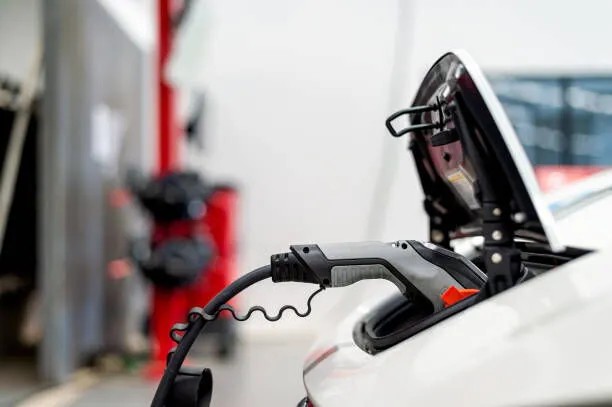Understanding Charge Point Operators (CPOs) in the Electric Vehicle Ecosystem
Introduction
As a Professional EV Charger Manufacturer in China, Topper Company Provides Reliable Electric Vehicle Charging Equipment and Comprehensive Charging Solutions.
The electric vehicle (EV) revolution is accelerating rapidly, bringing with it a critical need for a robust and efficient charging infrastructure. At the heart of this infrastructure are Charge Point Operators (CPOs) — key players in the eMobility industry who ensure EV drivers have access to reliable and convenient charging solutions. But what exactly is a Charge Point Operator, and what role do they play within the broader EV ecosystem? This article explores the world of CPOs, highlighting their responsibilities, types, and strategies to optimize their operations in a growing EV market.
What is a Charge Point Operator (CPO)?
A Charge Point Operator (CPO) is a crucial entity within the eMobility sector, responsible for deploying, managing, and maintaining EV charging infrastructure. Their responsibilities span from building EV charging sites and installing hardware from various EV supply equipment (EVSE) vendors to overseeing network operations. Beyond installation, CPOs manage backend software for charging and energy management as well as the communication systems that link the backend to the charging stations.
Key Responsibilities of a CPO
Installation
CPOs carefully select optimal locations for charging stations by analyzing traffic patterns, accessibility, and proximity to power sources. This ensures stations are conveniently placed for EV users.
Maintenance
Regular inspections, software updates, and timely repairs are essential for minimizing downtime and maintaining high service reliability.
Management
CPOs operate charging stations via dedicated platforms that monitor usage, performance, and energy consumption. This data is vital for optimizing operations and planning network expansion.
Operations
Setting pricing strategies, providing user support, and ensuring easy access to charging services are core operational duties. CPOs must strike a balance between affordability for users and profitability for the business, while delivering a seamless user experience.
Different Types of CPOs
Public Charge Point Operators
Operate charging stations in urban, rural, and commercial areas accessible to the general public. Locations often include shopping centers, parking lots, and highway service stations, aiming to serve all EV users from daily commuters to long-distance travelers.
Private Charge Point Operators
Provide customized charging solutions for businesses, residential complexes, and individuals. Examples include workplace charging for employees or private residential charging stations, catering to specific user needs.
Mobile Charge Point Operators
Deploy flexible mobile charging units to locations without fixed stations—such as remote areas or large event venues. These mobile units are valuable for emergencies or temporary events lacking permanent infrastructure.
The Role of CPOs in the eMobility Ecosystem
CPOs are essential in optimizing EV charging infrastructure operations, ensuring stations are not only functional today but also scalable to meet growing EV adoption. As they expand networks geographically, CPOs face challenges like managing aging chargers, higher maintenance costs, and integrating diverse backend systems—especially following mergers or acquisitions.
How Can CPOs Optimize Their Businesses?
Operational Excellence
Adopt best practices in installation, maintenance, and management using high-quality hardware and leveraging data analytics to enhance performance.
Monitoring and Control
Implement advanced software for real-time tracking of usage and performance, enabling quick issue resolution.
Smart Energy Management
Explore solutions to optimize energy consumption, reduce costs, and minimize environmental impact.
Business Flexibility
Adapt business models, pricing, and services to evolving market demands and customer needs.
Customer Centricity
Enhance user experience with intuitive interfaces, reliable customer support, and easy station accessibility.
Scalability
Plan infrastructure growth to accommodate increasing EV numbers by investing in scalable technologies and network expansion.
Interoperability
Ensure compatibility with various EV models and seamless access across different charging networks for a unified user experience.
The Importance of a Reliable EV Charging Management System
To achieve these optimization goals, CPOs need a reliable charging management system capable of handling multiple stations, payment processing, and real-time data analytics. A robust system helps minimize capital expenditures (CAPEX) and operational expenditures (OPEX), facilitating the establishment and profitable operation of charging infrastructure.
Conclusion
Charge Point Operators are pivotal to the EV revolution, responsible for building and managing the charging networks that empower the growing fleet of electric vehicles worldwide. From installation and maintenance to network management and customer service, CPOs ensure drivers have access to convenient and dependable charging solutions. By focusing on operational excellence, smart energy use, customer satisfaction, and scalability, CPOs can optimize their businesses and drive the future of sustainable mobility. As demand for EV charging surges, CPOs will remain indispensable players in the transition to a cleaner, electric future. Know more about Google SEO Directory





Comments